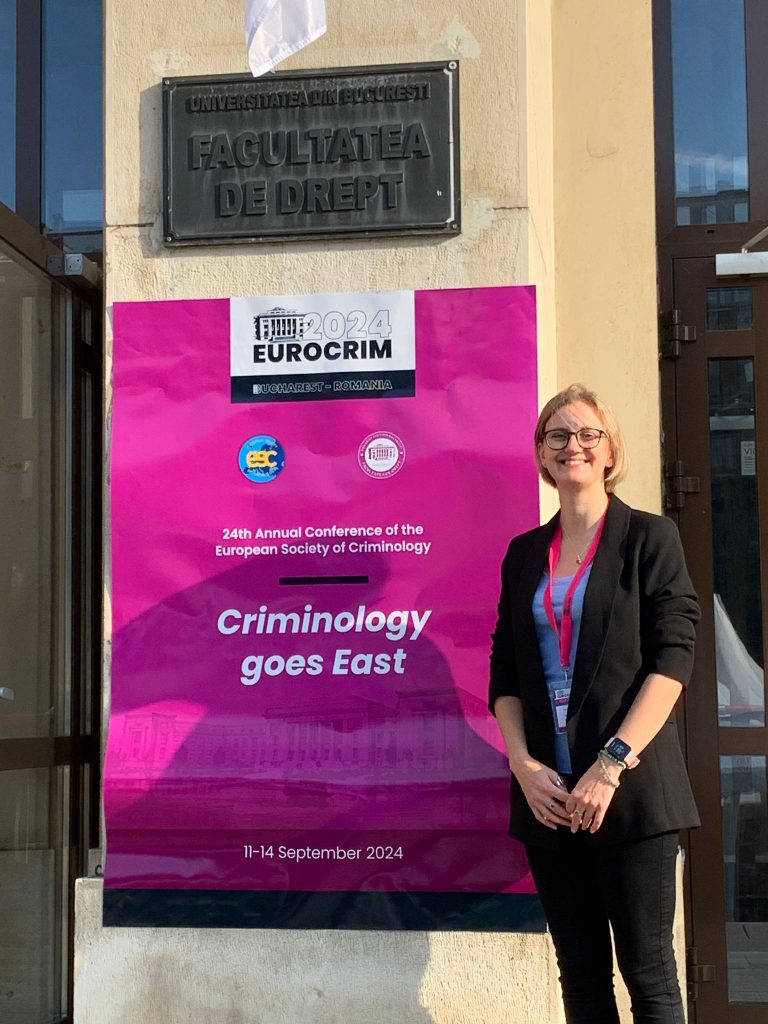On Friday 13th September, CASCADE Researcher Verity Bennett will be presenting at EUROCRIM 2024 at the University of Bucharest on the findings from the SOCEIS Evaluation (Action for Children’s Serious Organised Crime Early Intervention Service) from June 2023.
EUROCRIM 2024 this year is being held at Faculty of Law, University of Bucharest and brings together researchers across Europe to share findings from research projects that contribute to the development of criminology across the globe. The conference is an excellent opportunity for researchers to meet, network and discuss their mutual research interests.

Verity Bennett will be presenting her research on the feasibility of using police administrative data to evaluate action for children’s early intervention service to divert young people from serious organised crime during the session “Quantitative Methods WG Panel 1: Innovative Measurement and Data Utilization in Criminology”:
Using administrative data to evaluate Action for Children’s Serious Organised Crime Early Intervention Service and a Quasi-Experimental Design
Verity Bennett, Nina Maxwell, Zoe Bezeczky, Megan Nightingale and Jon Ablitt
Abstract:
Referrals for child criminal exploitation are growing in the UK, as young people (YP) are targeted and involved in serious organised crime (SOC). Action for Children’s Serious Organised Crime Early Intervention Service (SOCEIS) aims to tackle this problem via intensive 1:1 support for children and families, peer mentors and group work.
We investigated the feasibility of evaluating SOCEIS in four UK cities between June 2020-January 2023, using police administrative data (offending and missing episodes), via quasi-experimental design. SOCEIS participants were matched to YP in neighbouring cities without SOCEIS. Number of arrests and missing episodes in a 12-month period before and after referral to the service were compared between groups using difference-in-difference.
A high percentage (>80%) of SOCEIS participants were identified in police records for three cities, yet in one city only 52% were identified. Comparison data were available for three cities. For YP identified in police data, percentage arrested prior to SOCEIS referral varied from 55%-96%. Across all four cities >80% of YP with a pre-referral arrest record, had been arrested more than once. Over 50% of SOCIES YP identified in police records had a history of being reported missing prior to referral, and of these, 63%-77% YP had gone missing more than once.
Sample size following matching was small, only 25-33% (n=11 to 14) included in difference-in-difference analysis, which did not produce statistically significant results. Nonetheless, findings are tentatively encouraging, in that a comparison of number of arrests episodes in the 12-months post referral to SOCEIS were lower than for the 12-months prior to referral across three cities.
Extension of recruitment and follow-up periods would improve sample size, providing insight into longer term impact of SOCEIS. Coordinated classification of YP deemed at risk of SOC in intervention and comparison localities would substantially improve confidence in matching individuals between groups.
You can read more about the project findings on our website:
You can also watch the livestream of the plenary sessions of EUROCRIM 2024 on the European Society of Criminology’s YouTube channel: https://www.youtube.com/@esc-europeansocietycriminology
